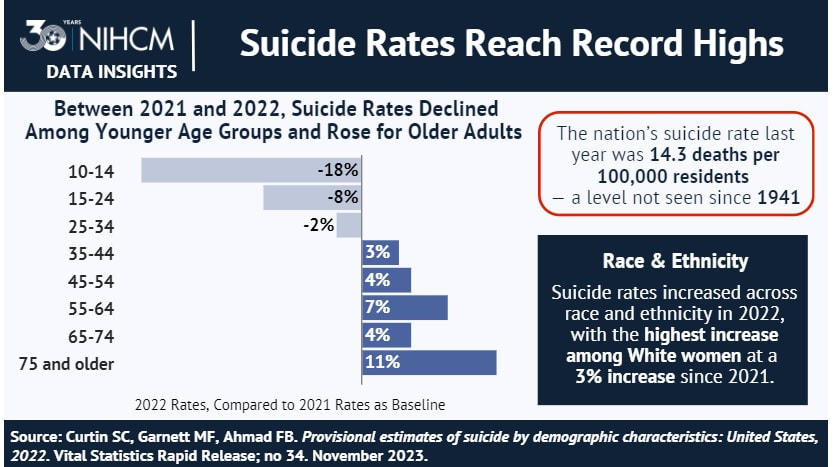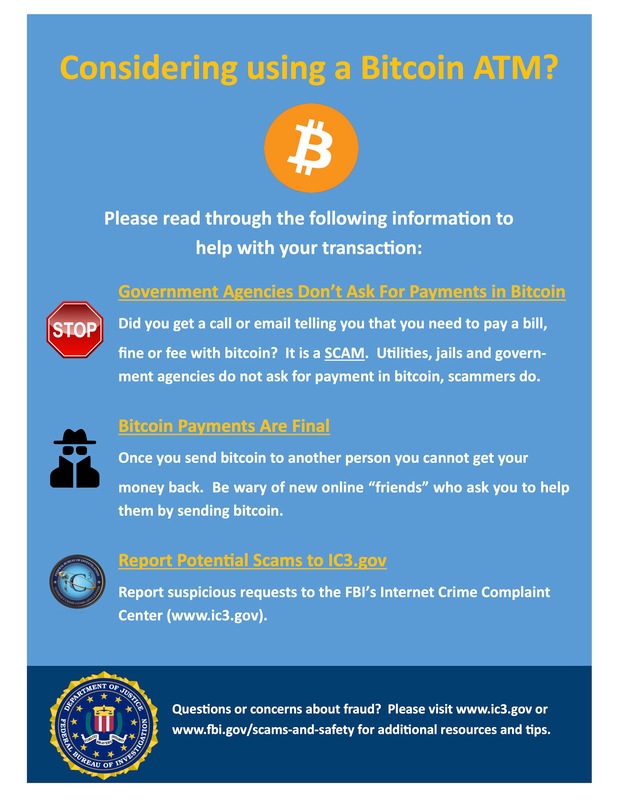|
COMMISSIONER OF SECURITIES AND INSURANCE, OFFICE OF THE MONTANA STATE AUDITOR  Fraud: it’s a billion-dollar industry. Consumers reported losing more than $10 billion to fraud in 2023 – a 14% increase from 2022, according to the Federal Trade Commission. So, how can you ensure that your dollars don’t contribute to this continuously growing sum of stolen money? The Office of the Montana State Auditor, Commissioner of Securities and Insurance, encourages you to practice the following items to help protect yourself from falling victim to financial scams.
It is important to remember that the only thing we can control is our own actions. There will always be scams and bad actors, but educating ourselves is the best way to prevent fraud from happening. If you ever have questions relating to scams or investment opportunities, call our Securities Division at (406) 444-3815. In an age where digital technology is part of everyday life, the risk of financial exploitation, particularly among seniors, has risen sharply. Scammers often target older adults, capitalizing on their trust and sometimes less familiarity with digital practices. However, there's a powerful tool in the fight against these unscrupulous activities: the Internet Crime Complaint Center (IC3).
Locally in Billings we have a Special Agent at the FBI who shared that often within 36 hours we can do things to freeze and stop money if it is getting moved domestically still, but after that time period joint reporting to tools like IC3.gov can help to coordinate stopping future issues. If you are a worker in social service, finances, or just know someone who has faced fraud then report it to local authorities and help us out by filling in IC3.gov the best you can. If you need to make a report the local FBI number is (406)248-8487 or you can call local law enforcement. The Internet Crime Complaint Center, or IC3, is a partnership between the Federal Bureau of Investigation (FBI) and the National White Collar Crime Center (NW3C). Established to receive complaints of Internet crime, IC3 serves as a central hub to collect and analyze data, providing a vital resource for law enforcement agencies across the United States. How does reporting to IC3.gov help Seniors?
Every individual report filed with IC3.gov adds to a dataset that helps trace, track, and tackle Internet-based scams and crimes. When it comes to protecting our seniors, knowledge is power, and collective action is an effective shield. Reporting to IC3 not only aids the victim but also fortifies a nationwide defense against the financial exploitation of older adults. It’s a powerful reminder that in the digital age, vigilance and proactive measures can significantly diminish the impact of cyber criminals. If you or someone you know suspects they've been a victim of a scam, don’t hesitate to report it to IC3.gov, local law enforcement or the FBI. It’s a crucial step not just for personal recovery, but for safeguarding our community, especially our seniors, from financial predators. Big Sky Senior Services has long been at the forefront of advocating for the well-being and security of seniors. Understanding the particular vulnerability of seniors to fraud, the organization is always on the lookout for resources and partnerships that can support seniors. The AARP Fraud Watch Network offers comprehensive tools and information tailored to combat scams at every level.
Please take the time to take full advantage of the AARP Fraud Watch Network by:
 In today's digital age, it's important to stay vigilant against scams and fraudulent activities, especially when it comes to your finances. One common tactic used by scammers is to impersonate the Internal Revenue Service (IRS), reaching out to individuals through phone calls, text messages, or emails. However, it's crucial to know that the IRS will not contact you through these means. Instead, the IRS primarily communicates with taxpayers through traditional mail. That being said, scammers have started sending letters with the IRS letterhead in “a cardboard envelope from a delivery service.” These letters ask for the taxpayer to divulge personal information “that can be used by identity thieves to try obtaining a tax refund and other sensitive financial information,” according to the IRS. By being aware of this fact, you can protect yourself from falling victim to scams that aim to steal your personal information or money. If you receive any communication claiming to be from the IRS through phone, text, or email, be sure to verify its legitimacy by contacting the IRS directly through their official channels. Never click on any links, and check the status of any pending refund on the IRS official website. If you did click on any links shared by a scammers, or shared personal/financial information with them, report it at IdentityTheft.gov to receive a free, customized recovery plan. Even if you don’t loose any money, report this or any other scam to the Federal Trade Commission (FTC) at [email protected]. Stay informed and stay safe when it comes to your taxes and financial matters. For more information, check out the FTC’s consumer alert on IRS communication and AARP’s scams and fraud alert on IRS impostor scams:
In recent years, there has been a concerning increase in senior citizen suicides, highlighting the urgent need for awareness, understanding, and preventive measures.
Recently the National Institute for Health Care Management released a study that shows a 11% rise in Senior Citizen related suicide. https://nihcm.org/newsletter/mental-health-holidays-winter This blog post aims to shed light on this issue, exploring the reasons behind the rise in senior citizen suicides over the last year and emphasizing the importance of collective efforts to prevent such tragedies. Reasons for the Rise: 1. Social Isolation: The COVID-19 pandemic has exacerbated social isolation among seniors. Lockdowns, social distancing measures, and fear of the virus have led to increased feelings of loneliness and disconnection, contributing to a decline in mental health. 2. Health Challenges: Seniors often face various health issues, both physical and mental. Chronic pain, illness, and the side effects of medication can lead to a diminished quality of life, fostering feelings of hopelessness and despair. 3. Financial Stress: Economic uncertainties, rising healthcare costs, and inadequate retirement savings can create significant financial stress for seniors. The fear of becoming a burden on family members or facing poverty in old age may contribute to suicidal thoughts. 4. Loss and Grief: The loss of a spouse, friends, or family members, coupled with the challenges of adjusting to life changes, can be overwhelming for seniors. Grief and feelings of loneliness can trigger depression, making them more susceptible to suicidal ideation. 5. Access to Lethal Means: Seniors often have easier access to lethal means, such as prescription medications or firearms. This increased accessibility can contribute to a higher risk of successful suicide attempts. Preventive Measures: 1. Community Engagement: Establishing community programs that promote social engagement among seniors can help combat isolation. Regular social activities, support groups, and community events can create a sense of belonging and purpose. The Adult Resource Alliance of Yellowstone County has a list of programs in their bi-monthly Prime Connections Magazine. https://allianceyc.org/prime-connections-your-senior-news/ 2. Mental Health Support: Prioritize mental health initiatives for seniors, including accessible counseling services and mental health awareness campaigns. Encouraging open conversations about mental health reduces stigma and encourages seeking help. Seniors in our county can connect with 3 free counseling sessions for crisis issues by contacting either Big Sky Senior Services 406-259-3111 or the Adult Resource Alliance. 3. Financial Education and Assistance: Providing resources for financial education and assistance can alleviate the economic stress faced by seniors. This may include workshops on budgeting, access to financial advisors, and support programs for those struggling financially. 4. Grief Counseling Services: Offering grief counseling services can help seniors cope with loss and navigate the emotional challenges associated with aging. These services can provide a crucial support system during difficult times. 5. Restricting Access to Lethal Means: Implementing measures to restrict seniors' access to lethal means, such as secure medication storage and firearm safety education, can reduce the likelihood of impulsive acts. Conclusion: The rise in senior citizen suicides is a complex issue with various contributing factors. It is crucial for our community to recognize the challenges faced by seniors and work collaboratively to implement preventive measures. By fostering a culture of support, understanding, and empathy, we can make strides toward ensuring the mental well-being and safety of our elderly population. Together, let us strive to create a society where every senior citizen feels valued, connected, and supported.
As the holiday season approaches, it becomes imperative to shed light on the significance of protecting our seniors from potential scams and elder abuse. The festive period, marked by generosity and warmth, unfortunately, also opens the door to opportunistic fraudsters preying on vulnerable individuals, particularly seniors.
Elderly individuals are often targeted due to their perceived trusting nature and potential unfamiliarity with evolving scam tactics. Holiday scams can take various forms, from fake charity solicitations to deceptive online shopping schemes. These scams not only pose a financial threat but can also have severe emotional and psychological consequences for seniors. By emphasizing the importance of avoiding holiday scams, we aim to empower seniors and their caregivers with knowledge and awareness. Understanding common scam tactics enables seniors to identify red flags and take proactive measures to protect themselves. Encouraging open communication within families and communities is crucial, as it fosters an environment where seniors feel comfortable reporting suspicious activities. We encourage you to learn more about holiday scams by listening to this podcast from AARP: https://www.aarp.org/podcasts/the-perfect-scam/info-2023/holiday-fraud-to-watch-out-for.html
Questionnaire
Statement they sign off on: If your response to any of these questions is “yes”, please consider the following: Verify you personally know the individual you are sending to or can confirm the legitimacy of the business you are sending to. · Scammers often impersonate friends or family members. Verify that the person you’re communicating with truly is your friend or family member. · Review the transaction and any concerns you have with your financial institution representative. Fraud prevention is important for everyone, but especially for seniors who may be more vulnerable to scams and financial exploitation. This is especially relevant in the context of cryptocurrencies, which are still relatively new and can be confusing for those who are not familiar with them.
There are several ways that seniors can protect themselves from crypto-related fraud. Firstly, they should be cautious of unsolicited phone calls or emails that ask for personal information or investment opportunities. These are often scams designed to steal money or sensitive information. Secondly, seniors should educate themselves on the basics of cryptocurrencies and how they work. This can help them to recognize when something seems too good to be true. Additionally, they should be aware of common scams in the crypto world, such as Ponzi schemes and fake new crypto currencies. Finally, seniors should consider using a trusted financial advisor or investment professional when making decisions related to cryptocurrencies. These professionals can offer guidance and help seniors make informed decisions about their investments. In summary, seniors can protect themselves from crypto-related fraud by being cautious of unsolicited communications, educating themselves on cryptocurrencies, and seeking professional advice when needed. Our friends at the FBI have begun to place these warnings on crytpocurrency ATMs. We encourage people placing these ATMs in their businesses to be sure to place these warnings to prevent senior abuse and fraud. |
AuthorBig Sky Senior Services' program the Prevention of Elder Abuse seeks to provide information to prevent fraud and abuse for Seniors in our community. It is our belief that preventing abuse and fraud leads to independence and better health. Archives
July 2024
Categories |
Providing Services that Promote Independence and Enhance Quality of Life for Senior Citizens.








 RSS Feed
RSS Feed

